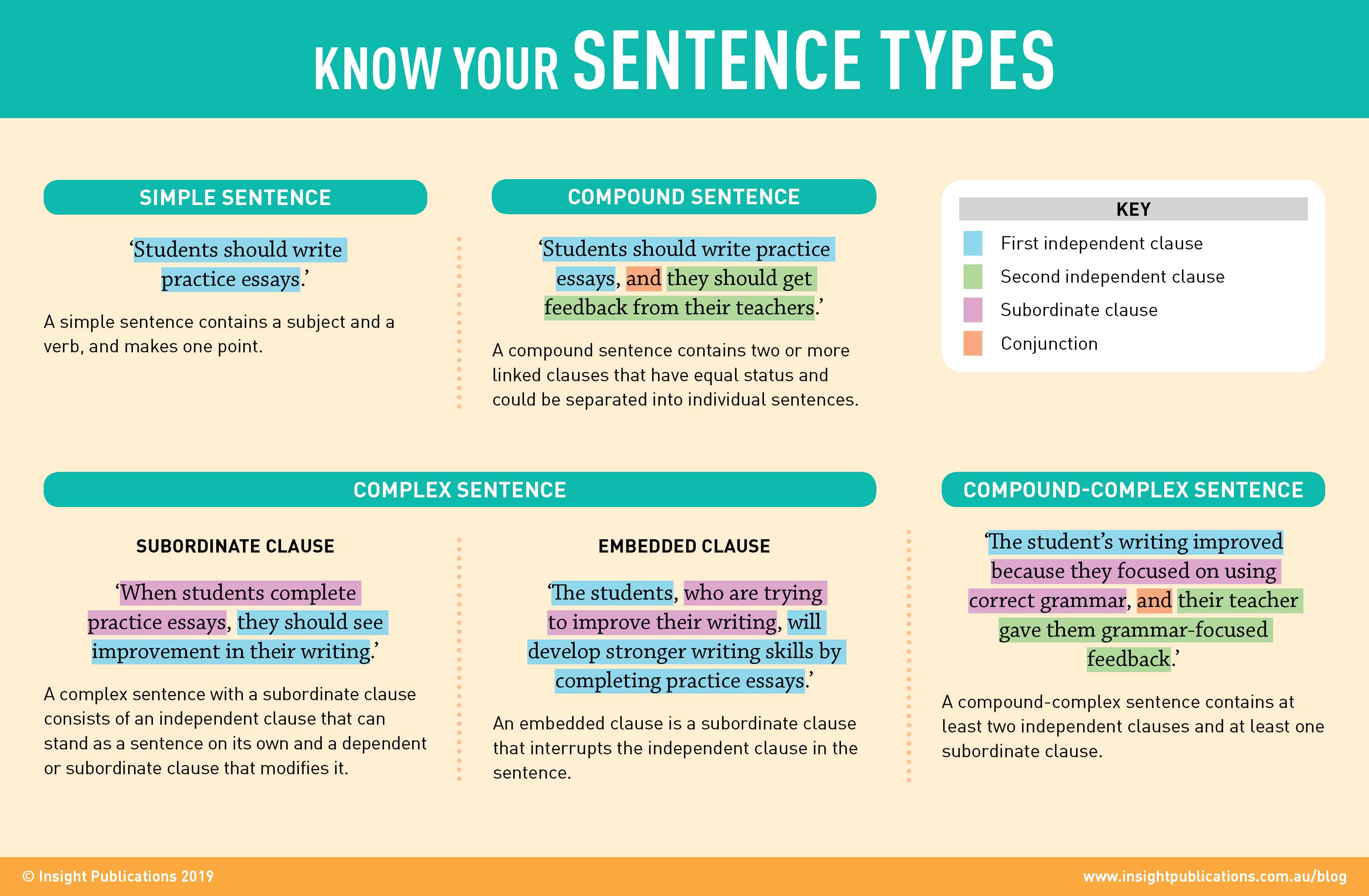This week, English teacher and Insight writer Melanie Flower discusses how to improve your writing at the sentence level.
–
Are you stuck in a rut when it comes to writing English essays? You might feel confident that you know the content, have mastered the basic essay structures for each part of the Study Design and have spent more than enough time developing your analysis of the texts and your understanding of argument. And yet, your essays don’t seem to be improving.
If this sounds familiar, it might be time to revisit the basics.
Many students spend a lot of time focusing on the content and overall structure of their essays, which makes it easy to overlook one of the most essential elements of good writing – sentence structure. The tips below will help you add sophistication and fluency to your writing by changing the way you look at sentences.
Learn the different sentence types
There are four basic types of sentences: simple, compound, complex and compound-complex. Examples of these are outlined below.

Use a variety of sentence structures and lengths
Working with sentences of varying length and complexity will improve the flow of your writing, and ensure you keep your reader interested. An essay that consists entirely of compound-complex sentences will quickly become unwieldy, while too many simple and compound sentences limit your ability to develop the relationships between ideas.
Use conjunctions
Conjunctions (such as ‘and’, ‘but’, ‘or’, ‘yet’ and ‘because’) are incredibly useful tools to link ideas neatly and effectively. Along with phrases such as ‘in addition to’ and ‘not only … but also’, conjunctions provide a springboard for you to elaborate and extend your discussion; they invite you to add further detail, which in turn encourages you to develop a more complex analysis. They also work to alert readers to the relationship between ideas to guide them through your argument.
Use the active voice
Your writing will be more engaging if you use the active voice (structuring sentences so that the subject of the sentence appears first and performs the action identified by the verb). Examples of the active and passive voice are outlined below.
- Active voice: ‘The students wrote the essays.’
- The active verb in this sentence is ‘wrote’, and the action is performed by the subject of the sentence, ‘the students’.
- Passive voice: ‘The essays were written by the students.’
- The passive voice uses more words and can be more difficult for the reader to follow.
Proofread for sentence structure, spelling and fact-checking
It can be very difficult to proofread your own writing, particularly when you have only just completed it. You may tend to see what you meant to write rather than what is actually on the page, and errors can easily be overlooked.
However, there are a few strategies you can use to help you proofread.
- Read your writing backwards to make it easier to pick up on spelling errors.
- Focus carefully on any quotes or references to characters and events to help you check your facts.
- Read your writing aloud to identify problems with sentence structure – grammatical errors tend to stand out when you hear the sentence. In an exam or SAC situation when it is not possible to read your writing aloud, you can imagine speaking the words and ‘hearing’ it inside your head. This should help you identify clunky or inaccurate sentence structures.
Many senior students tend to focus their energy on improving their knowledge and understanding of their texts. While this is essential, it is equally important to make sure you can express sophisticated ideas fluently and clearly. The VCE assessors look for ‘control and effectiveness of language use’, and a good understanding of sentence types and structure can help you develop in this area.
Need help revisiting the basics – grammar, punctuation, spelling, vocabulary and writing skills? The award-winning Insight English Handbook provides practical tips and guidelines for learning rules, developing vocabulary and improving writing skills.
Insight English Handbook is produced by Insight Publications, an independent Australian educational publisher.
Photo credit: Fabrik Bilder/Shutterstock

